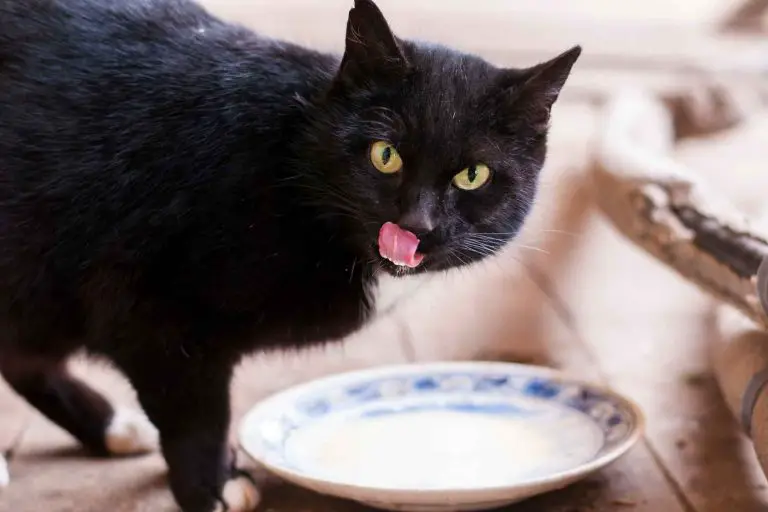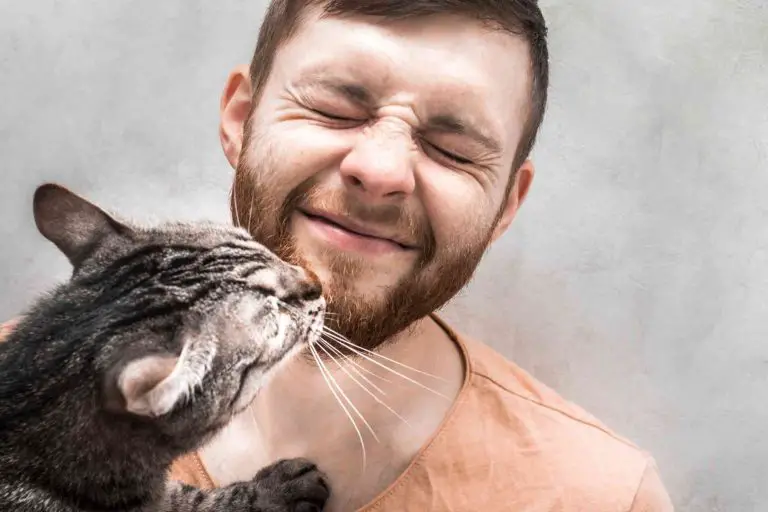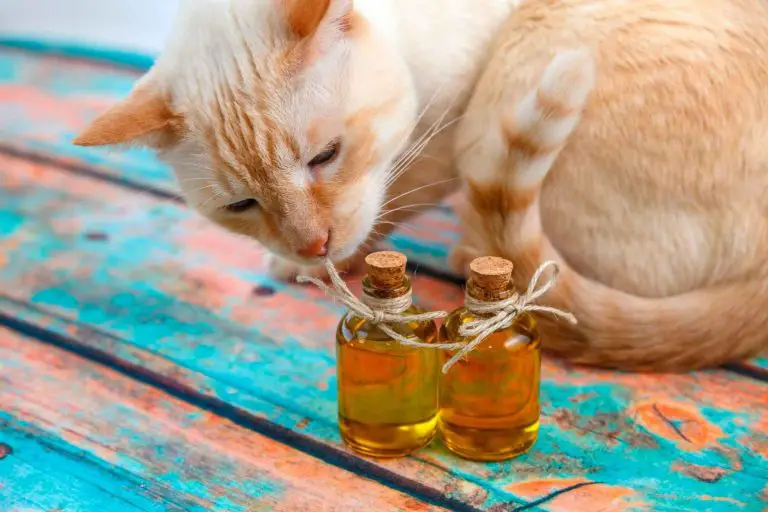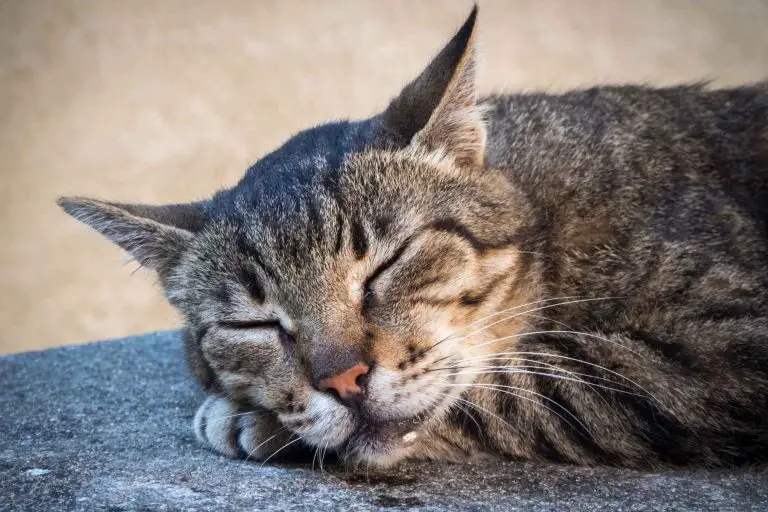Can Cats Eat Edamame?
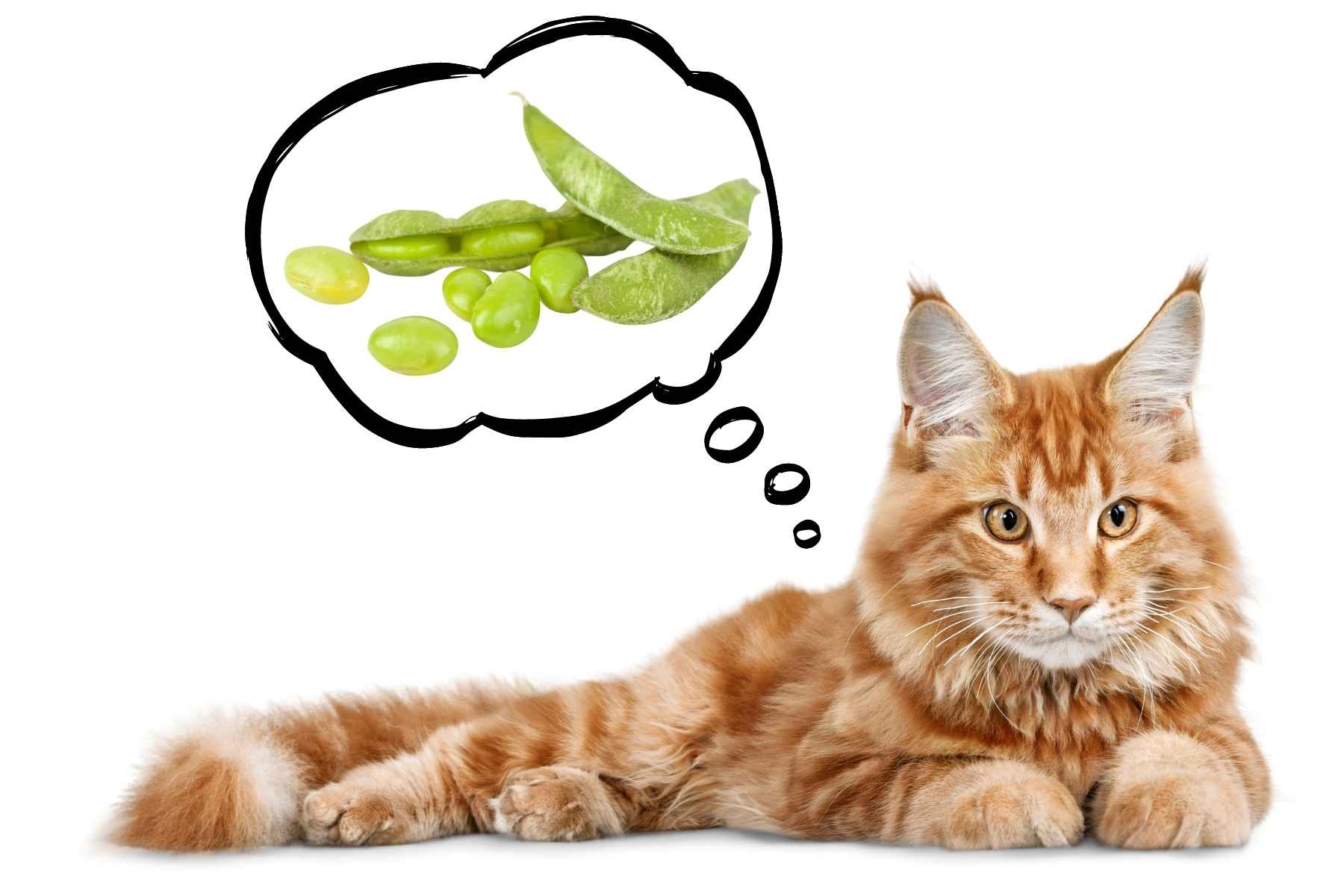
Have you ever wanted to share a new snack with your cat but weren’t sure if it was safe to feed it to them? In this article, we’re exploring whether or not edamame (immature soybeans), in particular, is a safe treat for felines.
Generally, it is safe to feed unseasoned, small portions of edamame beans to cats, as the bean isn’t poisonous/toxic to felines. As long as your cat isn’t allergic to soy, they can occasionally supplement their protein-rich diets of cat food with edamame snacks.
In this article, we’re diving deeper into the topic of cats eating edamame. For example, we’ll discuss whether it’s safe for cats to eat edamame, whether cats benefit from eating edamame, and whether cats enjoy it.
Then, we’ll discuss tips and precautions to remember when feeding your cat edamame, and we’ll answer some relevant frequently asked questions.
Can Cats Eat Edamame?
Most cats who are in good health and don’t have edamame allergies can tolerate moderate amounts of edamame in their diets.
Cats should only eat edamame plain (without seasoning, salt, oil, or frying). Further, cats should only eat edamame as a treat rather than a meal replacement.
Since edamame is the unripe or immature version of soybeans, this protein and fiber source is not toxic to their digestion.
Edamame even has some benefits for cats, such as those having trouble with constipation. Cats may also enjoy edamame for its protein, which boosts energy. However, there are some potential risks to feeding edamame to cats, which we’ll explain in more depth below.
Keep reading to explore the following topics regarding cats eating edamame.
- Is eating edamame good for cats?
- Do cats enjoy eating edamame?
- Can cats eat edamame shells?
- Risks of cats eating edamame
- Tips for feeding edamame to cats
Is Edamame Good for Cats?
In addition to being an acceptable treat or occasional snack for most cats, edamame can also be good for cats.
Based on its nutritional profile, which contains dietary fiber, protein, and other nutrients, edamame benefits cats when eaten in small amounts.
Nutritional Benefits of Edamame
Roughly 12% of edamame is comprised of protein, and they’re low in fat (only 5%). Protein is essential in the diets of young cats and kittens, who need a lot of energy support. So, having the occasional edamame snack may benefit your cat by giving it that boost.
Furthermore, edamame contains a decent amount of magnesium, which is suitable for regulating feline hormones and supporting healthy bones and teeth.
It also contains a decent amount of Vitamin K, Vitamin E, and Vitamin K and omega-3 and omega-6 fatty acids. For cats, these vitamins are important nutrients involved in balancing their diets.
Furthermore, omega fatty acids are essential for cats since their bodies can’t produce these on their own. Omega fatty acids benefit cats by acting as anti-inflammatory agents, soothing dry skin, promoting healthy skin, improving coat health, and supporting joint health.
Do Cats Enjoy Eating Edamame?
For many cats, edamame can also taste good to them, in addition to being good for them. Unless you have a cat that is a particularly picky eater or finicky about trying anything other than their usual cat food, they’re likely to try edamame.
But it will depend on your particular cat. Not all cats are prone to liking the same foods. Further, the older your cat gets, the less likely it is to be willing to try new foods or handle new foods on the stomach.
Some cats get excited just at the smell of edamame, and if they try it once and enjoy it, they may come sniffing around every time you have it in the house.
This is why you have to be careful with feeding cats edamame. If they get a taste of it and want it all the time, you may have a problem on your hands.
Can Cats Eat Edamame Shells?
Although cats can technically tolerate eating the edamame shells, it’s not advisable to let your cat ingest them.
Your cat may have trouble getting them down safely because they are tougher, larger, and harder to chew. Furthermore, the shells will likely be a source of digestive irritation for cats because they aren’t intended to get eaten. This could be a potential choking hazard.
Even in human diets, the edamame pod (shell) isn’t supposed to be eaten and be a cause for concern when it comes to stomach upset.
Risks of Cats Eating Edamame
As much as it’s important to understand the potential benefits of cats eating edamame, it’s essential to understand the potential risks for felines.
Digestive Upset
Cats can have sensitive stomachs, just like humans can. This is why cats may throw up, have loose stool, or experience constipation when eating edamame.
It is especially true if you give your cat too much edamame. It shouldn’t be a regular part of their diet. There is simply too much fiber in edamame to be a frequent snack.
To Much Edamame
Another risk of feeding edamame to your cat is that it may start to like the beans a little too much. And in a worst-case scenario, your cat might prefer it to cat food.
If your cat starts refusing to eat its cat food, then it will be missing vital nutrients that are specially formulated to maintain wellness.
Risk of Overripe Edamame
Yet another risk of feeding edamame to cats is that you might accidentally feed them a bean that is too ripe or mature. Remember, edamame beans are immature or not-yet-ripe soybeans.
And soybeans at the mature stage are not the healthiest for cats to consume. It can interfere with nutrient absorption when they eat and lead to poor organ health.
Tips for Feeding Cats Edamame
We’re also sharing some tips and advice for feeding edamame beans to your furry friend.
If cats are going to eat edamame, you should take precautions to be as safe as possible.
- De-shell edamame before feeding it to your cat so that it doesn’t pose a choking hazard or upset its stomach
- Feed it to them fresh or frozen and raw, if possible, as a topping on their cat food
- If you’re going to cook the edamame at all, only steam it (don’t fry, grill, or use any oils for cooking it)
- Don’t add any seasoning, salt, spices, sugar, or other flavorings to the edamame
- Only feed your cat small portions of edamame so that they don’t consume too much dietary fiber
- Watch out when feeding edamame to cats who have histories of sensitive digestion
- Don’t replace your cat’s regular cat food with edamame or replace meals with edamame
- If your cat is prone to dietary sensitivities, speak with your veterinarian about feeding it edamame first
- Find out if your cat has a soy or edamame allergy/intolerance before providing it edamame
Frequently Asked Questions
Can cats eat too much edamame?
Yes, as with any food, edamame needs to be fed to your cat in moderation. Edamame is high in fiber, leading to digestive issues like flatulence, constipation, and diarrhea if your cat consumes the bean in excess.
You also don’t want to feed them too much edamame compared to their cat food, which has the nutrient profile cats need.
Can edamame be poisonous?
No, edamame is not an inherently poisonous plant. It’s actually a soybean that hasn’t fully ripened or matured yet, but it’s safe for humans and cats to eat.
Unless your cat has a full-fledged allergy to or intolerance of soy/edamame, it shouldn’t be poisonous or toxic for them to eat it.
Why is my cat obsessed with edamame?
Cats may develop a proclivity for eating edamame if you start feeding it as a snack because its high protein content can boost their energy levels.
This is why it’s important to give them edamame only as an occasional treat. They may begin to prefer edamame to their usual cat food, which they need to maintain good health.
Can cats digest soy protein too?
Although cats can safely eat edamame, which is essentially an unripe soybean, it’s difficult for cats to digest ripe soybeans.
When cats consume the protein found in mature soy, the phytates in the protein can inhibit the cat’s ability to absorb minerals, leading to poor health and nutrition.
Final Thoughts
You may have heard about some cat owners feeding their furry friends edamame beans. But if you were still unsure about the question, can cats eat edamame? hopefully, this guide has given you more insight into the matter.
Cats can safely eat edamame if it’s prepared plain, fresh, or frozen, and in small portions on rare occasions. Edamame is not the same as soy and shouldn’t be treated the same, as soy can be harmful in cat diets.
Not all cats enjoy edamame, but they can benefit from the fiber, vitamins, and protein included in the beans. Consider trying it out if you want to supply a healthy treat to your cat occasionally.

